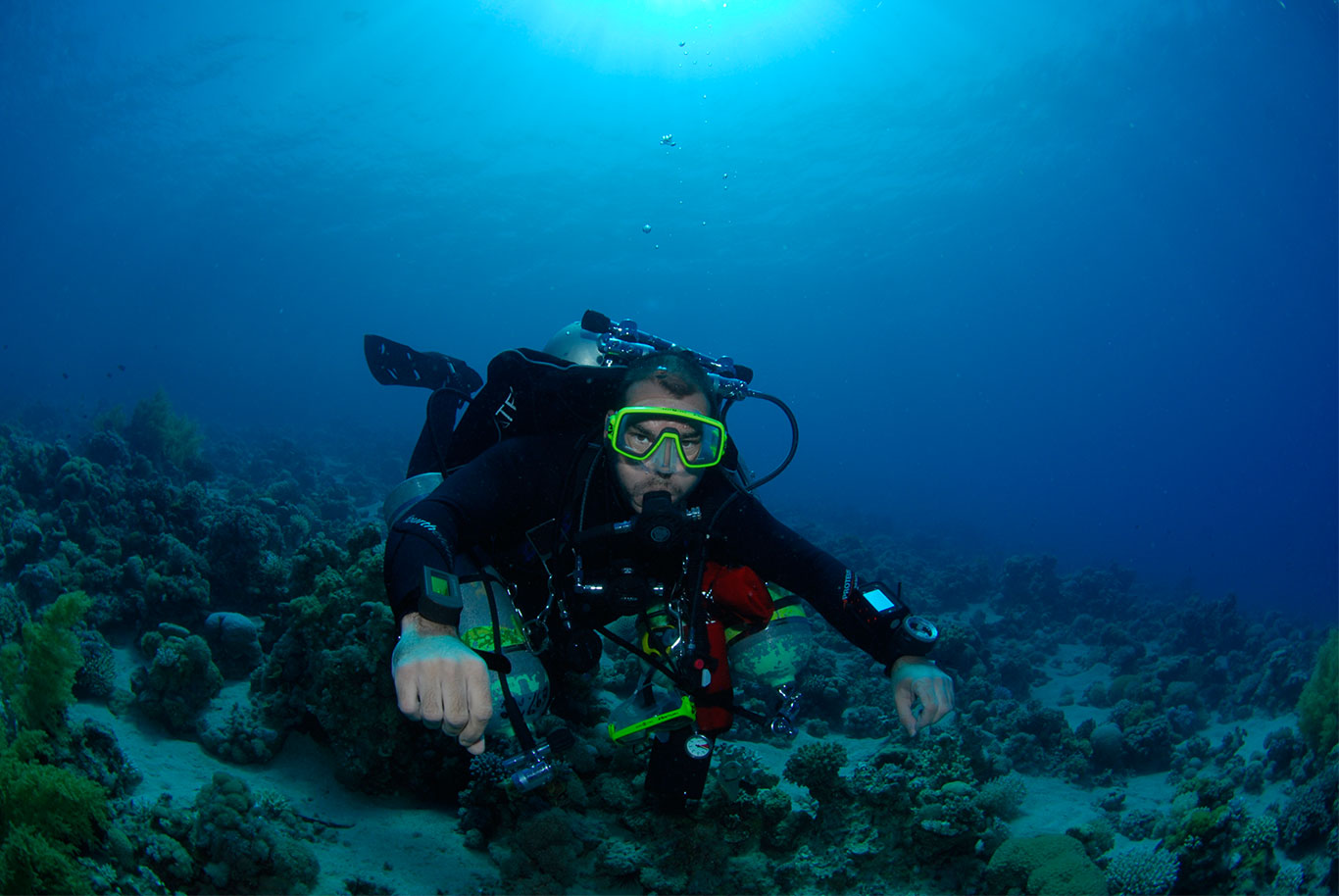Air consumption is one of the biggest challenges for both new and experienced scuba divers. The longer you make your tank last, the more time you get to explore Aqaba’s vibrant coral reefs and marine life. Efficient breathing isn’t just about saving air — it’s about improving buoyancy control, safety, and overall comfort underwater.
Here are ten practical ways to improve your air efficiency on every dive:
1. Relax Before You Descend
Tension increases your breathing rate. Take a few deep, slow breaths at the surface. Calm your body before descending. Starting your dive relaxed means you’ll naturally use less air.
2. Maintain Proper Buoyancy
Constantly inflating and deflating your BCD wastes both energy and air. Achieve neutral buoyancy by adjusting small amounts and using your breath as a natural control. Good buoyancy = efficient breathing.
3. Move Slowly and Smoothly
Fast kicks and arm movements consume energy and oxygen. Use slow, controlled fin strokes. Glide whenever possible and avoid fighting against currents.
4. Perfect Your Trim
A horizontal body position creates less drag. Less drag means less effort. Proper trim helps you glide efficiently through the water with minimal energy output.
5. Breathe Deeply and Slowly
Short, shallow breaths lead to carbon dioxide buildup and faster air consumption. Take long, steady breaths — in through the mouth, out through the regulator — to stay calm and balanced.
6. Stay Warm
Cold divers breathe faster. In Aqaba’s warm waters this is rare, but if diving deeper or in winter, wear proper exposure protection to stay comfortable and reduce unnecessary air use.
7. Check Your Gear Fit
An ill-fitting mask or leaking regulator can cause stress and wasted effort. Make sure your equipment fits perfectly and is serviced regularly before every dive.
8. Dive Streamlined
Secure hoses and accessories close to your body. A streamlined setup reduces drag and makes your movement more efficient.
9. Dive With Better Buoyancy Divers
Your dive buddy affects your rhythm. Pairing with calm, experienced divers helps you maintain a slower pace and better control underwater.
10. Practice, Log, and Improve
Track your air consumption in your dive log. Note the depth, conditions, and average time. Over time you’ll recognize patterns and keep improving.
Saving air while scuba diving isn’t just about lasting longer — it’s about diving smarter. By mastering your breathing and movement, you’ll enjoy longer, safer, and more peaceful dives in Aqaba’s crystal waters.
Ready to put these tips into action?
Book your next dive in Aqaba with us and experience how efficient breathing transforms your underwater adventure.

